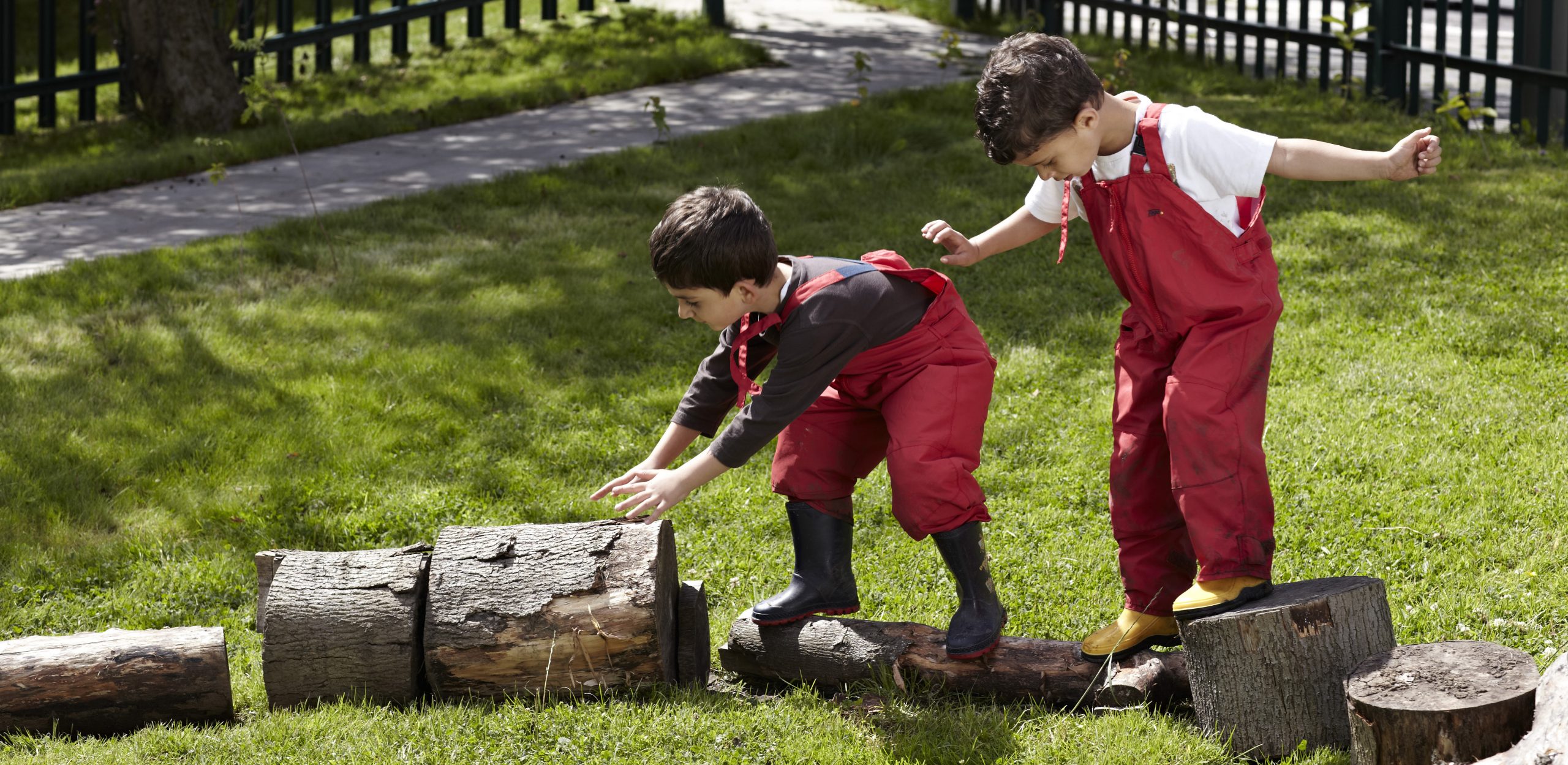
A team of Loughborough University and NCSEM-EM academics have launched a new website that provides practical tips to help early year practitioners and parents feel confident in delivering physical development opportunities to children.
Previous research undertaken at Loughborough University revealed many four-year-olds are not physically ready to start school with 30% of 45 Foundation Stage children found to be ‘of concern’ and almost 90% demonstrating some degree of movement difficulty.
Physical development involves developing control of muscles and physical coordination and it is the primary function in all other life skills.
It enables children to complete simple tasks such as sitting still, holding a pencil, putting on shoes and reading – all skills essential for school.
Dr Janine Coates, of the School of Sport, Exercise and Health Sciences (SSEHS) hopes the Early Movers website will help parents and early year practitioners ensure children are ‘school ready’ by providing guidance and activity ideas to aid with the physical development of babies and young children.
The website, which Dr Coates designed alongside early years practitioners, external consultants, Loughborough Campus Nursery and SSEHS academics, provides information on some of the core principles underpinning physical development in children.
It is split into two key sections: ‘Core Skills’ and ‘Activities’. The first section breaks down core skills into categories – such as rolling, balancing and catching – and gives examples of the movements that would be expected to be seen emerging in babies, toddlers, and pre-schoolers.
It aims to provide those looking after children with the tools to help youngsters progress from the building blocks of each core skill to simple and advanced levels.
The Activities section is full of creative and fun suggestions for games parents and early years practitioners can initiate with children to develop their core skills.
Ideas range from ‘Feed the Fish’ – a game that sees youngsters test their balance and throwing skills by walking across a bench to ‘feed’ toy fish by throwing a bean bag at them – to ‘Treasure Baskets’ – an activity that utilises a box and simple household items to help with hand-eye co-ordination, picking-up objects and other skills.
The website also provides a handy glossary that explains technical terms that relate to physical development.
As well as acting as a useful resource, Dr Coates hopes the website will give early year practitioners more confidence as she says many feel they struggle with monitoring and assessing physical development.
She also hopes Early Movers will highlight that there will be a great variation in the age at which children acquire the same skills so parents shouldn’t be disheartened if their children are not able to perform the same skills as their peers straight away.
Of the website’s importance, Dr Coates said: “When we started to develop Early Movers, we talked to a number of early years practitioners who made it quite clear that there was a need for a resource that broke down physical development skills into more understandable chunks because official guidelines are often quite broad.
“There’s also a whole host of research that also shows that a number of children starting school at the age of five are not ready and physical development is one of those key competencies that allow children to be school ready so we felt there was a need for a resource to help early years practitioners, and parents too, bring around children’s physical development so they are ready to sit and learn in that setting.”
She continued: “We wanted to take a skills-based approach rather than an aged-based one as the age at which children acquire skills is greatly influenced by the child having regular, daily opportunities to access a wide variety of kinds of movement play. It is also influenced by their physical and emotional health.
“A child with delayed personal development may catch up, especially with appropriate intervention, but young children need to be given regular opportunities and encouragement to practice and refine their physical skills through being active.”
Loughborough Campus Nursery is already using the website as a resource for its early year practitioners and recommends other child daycare centres do the same.
Karen Walker, Deputy Manager at Loughborough Campus Nursery, said: “It’s a very useful tool as it underpins a lot of the knowledge our practitioners already have and explains why children need to learn such skills to reach their full potential and teaches the full sequence of a skill. We’ll be using it a lot and we’re very impressed.”
Mother-of-three Lucy Reynolds and other parents that use the nursery have also been made aware of the Early Movers website.
Lucy said: “I will most definitely be using this website in the home environment with my youngest child, both in and outdoors. I wish I’d had something like this to use when my other two children were much younger. It’s a really exciting website.”
The Early Movers website can be found at: www.earlymovers.org.uk
A series of videos discussing different physical development activities that are suggested on the Early Movers website can also be found here.